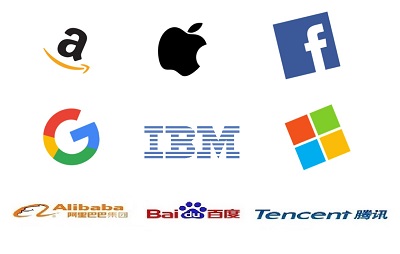Artificial Intelligence, instrument of a new cold war?
2019 marked the 50th anniversary of man's arrival on the Moon, the highpoint of the space race begun with the speech given by US President John F. Kennedy on September 12, 1962. Reaching the moon became a priority after the advances made by the Soviet Union with the launch of the first artificial satellite, as well as the orbiting of the first living being and the first human being. The program brought together academic institutions, businesses, and the U.S. government in an effort that achieved its goal 7 years later.
The space race took place in the context of the Cold War, in which all government actions, including the promotion of science and technology, were evaluated based on their contribution to strengthening the U.S. geopolitical position in its fight with the Soviet Union for world dominance. In this way, support for technologies of potential military or strategic use resulted in technological advances in communications, aerospace and computing industry that later had peaceful uses, such as the internet.
After the fall of the Berlin Wall in 1989, the U.S. became the undisputed world power, so military applications ceased to be the main driver of technological development. Since then, commercial applications are the incentive that leads companies to develop new technologies and American companies have dominated the landscape. As a result, the geopolitical role of technology diminished and, in a world of globalized trade, became one more commodity.

Image by Dimitris Vetsikas from Pixabay
In this decade about to end, Artificial Intelligence (AI) seems to re-give geopolitical meaning to technological development. The People's Republic of China, with its 1.4 billion inhabitants and its average annual economic growth rate of 9.2% over the past 30 years, ceased to be a poor country trying to pivot in the struggle between the U.S. and the Soviet Union to become the world's second-largest economy. According to the World Bank, in 2018 China's Gross Domestic Product (GDP) was already 65% of that of the US, with whom it is engaged in a trade war.
In 2017 China launched the so-called "Next Generation Artificial Intelligence Development Plan", a three-stage plan to become the primary innovation center in AI by 2030. The plan states that, by 2020, the Chinese AI industry will need to be in line with its competition and, by 2025, should have global leadership in some fields. To this end, huge government investments are forecasted, as well as those of powerful Chinese technology companies, which have created a market independent from the Western one. The scope and implications of the plan have generated concern in the U.S., as well as calls for a similar plan.
This reaction is understandable. According to the book of futurist Amy Webb, "The Big Nine: How technological titans and their thinking machines could warp humanity," the AI industry is dominated by nine companies, six North American (Amazon, Apple, Facebook , Google, IBM and Microsoft) and three Chinese (Alibaba, Baidu and Tencent). These giants control the applications for purchase, contracting of services and coexistence online, and, in the search for more AI functionalities, they dominate research and investment in the industry.

To get an idea of the size and importance of these companies, as of December 2, 2019, the value of the outstanding shares of the nine giants is $5.9 trillion, almost five times Mexico's GDP. Moreover, its value is equivalent to the sum of the GDP of all Latin American and Caribbean countries. On the other hand, their customers are in the billions and make up a significant proportion of the world's population, so the decisions made by these companies will influence the evolution of human society in the coming years.
These nine giants operate on different worlds, separated not only by the antagonism of trade disputes, which hinders the performance of one another, but by different visions of the state and its relationship with citizens. American companies operate in an environment where the government does not decide to regulate, and where privacy rights, as well as the dominance of personal data in a democratic system, seem to prevail. For their part, Chinese companies operate in a pragmatic environment, where individual privacy or freedom interests are contingent on the interest of the state.
The problem is that when the powers compete, history shows us that two circumstances arise that can lead us to conflicting times:
- Distrust among the powers paradoxically brings them closer in their approach, as the excuse of national security justifies greater surveillance of the population and the intervention of technological development for defense purposes.
- The need to expand markets takes on a strategic nature. In the area of AI, it is natural for the U.S. to view Europe and the advanced countries of Asia as natural territory, while China targets the rest of the countries in Asia, Africa and Latin America (we will need to see the orientation of Russia).
Today we already see ominous signals, such as the announcement of the GitLab programming platform to consider banning hiring in China for fear of espionage, or the social credit system of the population in China, which brings to mind the episode of the Black Mirror series.
Let us hope that AI, a tool that must be used for the benefit of humanity, does not become the instrument that will lead us to a bleak future, or a rerun of the Cold War with cyber weapons. In this context, it is worth remembering a couple of sentences from Kennedy's 1962 speech, which although referred to the space race, are valid for science and technology in general:
- "For space science, like nuclear science and all technology, has no conscience of its own. Whether it will become a force for good or ill depends on man… "
- "Space can be explored and mastered without feeding the fires of war, without repeating the mistakes that man has made in extending his writ around this globe of ours..."
Did you enjoy this post? Read another of our posts here.



